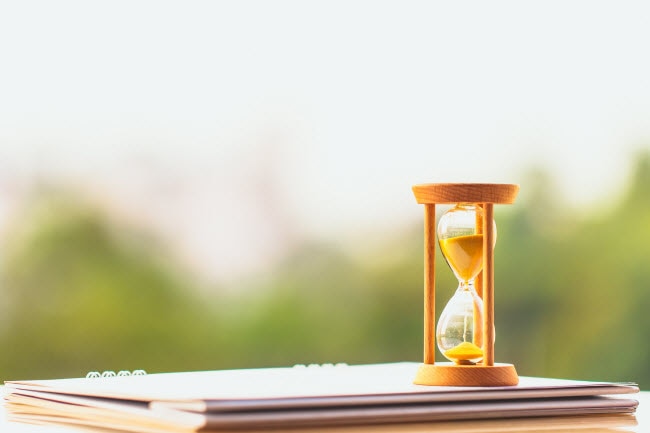Does it feel like time flies faster with each passing year? If you can’t figure out how January suddenly turned into April seemingly overnight, you are not alone.
As anyone who has reached the age of 30 -- and beyond -- knows, time seems to speed up as we age. But why?
Science has several theories about why the calendar appears to accelerate. Here are a handful:
Time speeds up as our brain slows down. As we age, the brain’s ability to obtain and process images slows down.
Duke University researcher Adrian Bejan recently hypothesized that because we view fewer new images in the same amount of actual time, it appears as if time is passing more quickly.
Fewer new experiences – and a more humdrum routine – make time fly. Plan an activity-packed vacation, and you will form a lot of new memories. When you look back, all those memories will make the vacation feel like it lasted a long time.
Similarly, when we are young, our lives are packed with new, exciting experiences. As we age, life settles into a routine. Thus, some experts believe time appears to move more quickly as we age because we aren’t forming as many novel memories.
Our brain’s internal clock becomes less accurate over time. More than two decades ago, researchers found evidence that older people perceive time less accurately.
In the 1990s, researcher Peter Mangan of Clinch Valley College in Wise, Virginia, asked people to estimate a three-minute interval by counting seconds as they passed.
People between the ages of 19 and 24 had guesses that were impressive – on average, three minutes and three seconds actually had passed by the time they declared that three minutes had elapsed.
But folks between the ages of 60 and 80 were way off, declaring that three minutes had passed when – on average -- three minutes and 40 seconds actually had flown by.
Mangan attributed the inaccuracy to brain-cell deterioration that slows the body’s internal clock.
How to better enjoy the time you have
There is nothing we can do to slow the passage of time. But we can better appreciate the minutes we have by taking some simple steps.
Too often, we have regrets about the past, or feel anxiety and depression about the future, says Tchiki Davis, founder of the Berkeley Well-Being Institute, a California-based organization that has worked to improve the well-being of others for 15 years.
Instead, we should concentrate on living in the present moment. “Most positive emotions live in the present moment,” she says.
Learning to stay in the present moment – and understanding that the present is all we really have – creates a mindset where “each of these moments become precious,” Davis says.
Two of the best ways to increase your appreciation of the present moment are:
Practice gratitude. Reminding yourself of the good things and experiences in your life helps you appreciate the present moment more, Davis says.
“One trick for doing this is taking away something you love for a week -- like chocolate or coffee,” she says. “Then, add it back in and you'll suddenly appreciate the little things a bit more.”
Practice savoring. This involves mentally holding on to the positive emotions you experience in the present moment. “When something good happens, really suck the marrow from it,” Davis says.
For example, if you're having a good time with friends, pause for a moment to reflect on how grateful you are for them – “how awesome they are, and how good this moment feels in your body,” Davis says.




